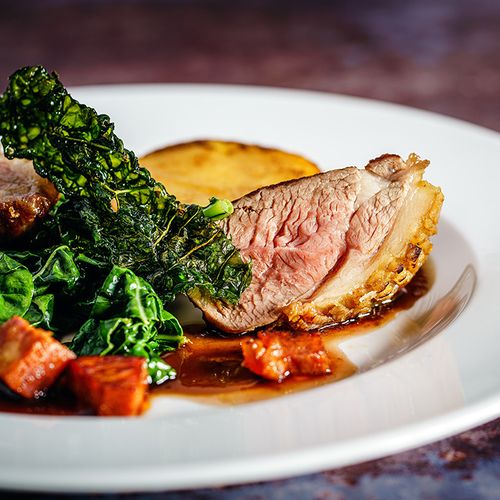Diets high in red meat and in processed meats shorten life span, not just due to cancer and heart disease, but due to Alzheimer's, stomach ulcers and an array of other conditions as well, a US National Cancer Institute study has found.
In fact, reducing meat consumption to the amount eaten by those who ate the least (the bottom 20%) could save 11% of men's lives and 16% of women's, according to the study.
"The consumption of red meat was associated with a modest increase in total mortality," said Rashmi Sinha, PhD, lead author of the study published in the Archives of Internal Medicine.
"This fits together with the findings of the American Institute for Cancer Research and the World Cancer Research Fund and the American Cancer Society, which recommend limiting the consumption of red meat," added Dr. Sinha, who is a senior investigator with the nutrition epidemiological branch in the cancer epidemiology and genetics division at the Cancer Institute. Dr. Sinha noted that this is the first time that meat consumption has been linked to overall mortality.
Background
Previous studies of red meat had mostly found an association with cancer incidence. Last year, US National Cancer Institute researchers reported that a quarter-pound hamburger or a small pork chop eaten daily could put you at increased risk for a variety of cancers.
The message from the latest study echoes that finding: The more red meat and processed meats you consume, the greater your risk for dying of cancer.
The Study
For the study, the researchers looked at what more than a half-million people, ages 50 to 71, were eating over the span of a decade. Participants tended to be white and educated with fewer smokers and more vegetable-and-fruit eaters than in the general population. During that time, more than 71,000 people died.
The Results
Men and women eating the highest amount of red meat were found to have a 31% and 36%, respectively higher risk for dying from any cause, than those eating the least amount.
Women eating the most processed meat were 25% more likely to die early than those eating the least of this type of meat, while men had a 16% increased risk, the study found.
Causes of death for those in the study included diabetes, Alzheimer's disease, ulcers, pneumonia, influenza, liver disease, HIV, tuberculosis and chronic obstructive pulmonary disease.
Dying from cancer also was more likely among those eating the most red meat: 22% higher for men, 20% for women. The risk for death from cancer increased 12% for men and 11% for women who ate the greatest amount of processed meat.
Similarly, the risk of dying from cardiovascular disease among those eating the most red meat was higher by 27% for men and 50% for women. For processed red meat, the risk was 9% higher for men and 38% higher for women.
Meat contains many carcinogens as well as saturated fat, which might explain the increased mortality risk, the authors stated.
Meat Industry Responds To Study
But the American Meat Institute objected to the conclusion, saying in a statement that the study relied on "notoriously unreliable self-reporting about what was eaten in the preceding five years. This imprecise approach is like relying on consumers' personal characterization of their driving habits in prior years in determining their likelihood of having an accident in the future."
"Meat is an excellent source of zinc, iron, B-12 and other essential vitamins and minerals," the statement continued. "The US Dietary Guidelines say to eat a balanced diet that includes lean meat. In this way, you derive a wide array of nutrients from many different sources. It's the best return on a nutritional investment you can get."
Expert Reaction
Jay Brooks, MD, chairman of hematology oncology at Ochsner Health System in Baton Rouge, Louisiana, described the study's findings as "provocative."
"The question is, how much of it is the meat and how much is the extra calories," Dr. Brooks said. "Calories per se are a strong determinant for death from cancer and heart disease. This should make us think about our calorie intake.
Guidelines For Meat Consumption
Michael Thun, MD, vice president emeritus of epidemiology and surveillance research at the American Cancer Society, said the study's findings "support previous studies as well as supporting the American Cancer Society nutrition guidelines."
Those guidelines include choosing fish, poultry or beans instead of beef, pork and lamb; choosing leaner cuts of meat; and baking, broiling or poaching meat rather than frying or charbroiling it.
Bottoms Up! Wine Blocks the Harmful Effects of Meat
Digestion of the fat in meats, such as beef and poultry, leads to the release of toxic chemicals in the body. These chemicals have been linked to cancer and heart disease.
But: The toxins are neutralized by antioxidants called polyphenols in red wine.
Self-defense: Eat meat only occasionally—and have a glass of red wine with your meal when you do.
Red Meat Raises Blood Pressure
When researchers followed more than 28,000 women over 10 years, those who ate more than one-and-a-half servings daily of red meat (for example, six to nine ounces of beef) were 35% more likely to develop high blood pressure than those who ate no red meat. Researchers believe similar results would apply to men.
Theory: Saturated fats, cholesterol, animal protein and heme iron (the type in red meat) may play a role in raising blood pressure.
To lower your risk for high blood pressure: Limit your intake of red meat, and substitute other protein sources, such as fish, legumes, soy and low-fat dairy foods.
